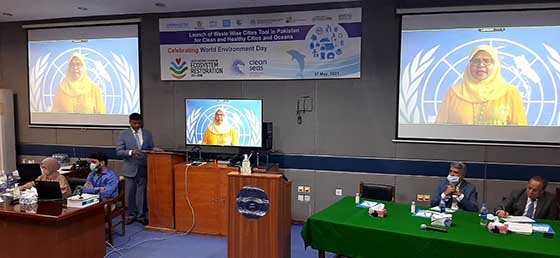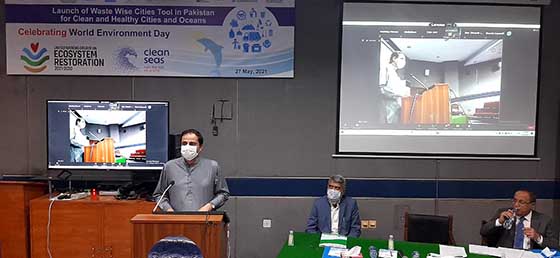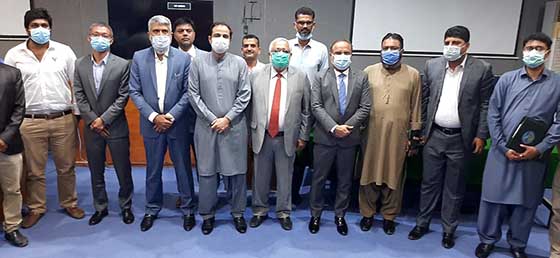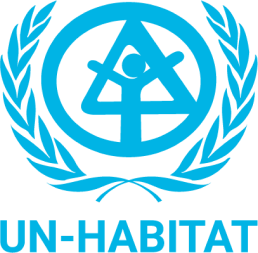Karachi, Pakistan, 27 May 2021 – On World Environment Day 2021 Celebration event, UN-Habitat launched Waste Wise Cities Tool (WaCT) in Pakistan for restoration of urban and marine ecosystem, in collaboration with Ministry of Climate Change, UN Environment, Sindh Environment Protection Agency, Directorate of urban policy and strategic unit Sindh, Sindh Solid Waste Management Board and NED University of Engineering and Technology. The WaCT will be applied in Karachi to analyze the challenges of solid waste management in the city and will identify policy and infrastructure gaps for the improved solid waste management.
The kickoff event took place in Karachi on 27 May 2021 in hybrid mode. Barrister Murtaza Wahab Advisor to Chief Minister Sindh for Law, Environment, Climate Change and Coastal Development, Sindh was the Chief Guest. Mr. Jawed Ali Khan, HPM, UN Habitat welcomed the participants. Ms. Maimunah Mohd Sharif, Executive Director, UN Habitat gave the opening remarks virtually and extended sincere congratulations to the Government of Pakistan for hosting this year’s observance of World Environment Day. She highlighted that if we want to address this pandemic and the current global environmental challenges such as solid waste, they must be used to transform, to build back better. UN-Habitat is assisting cities through actions including waste data and monitoring, knowledge sharing, education and advocacy.

Ms. Jouce Msuya , Deputy Executive Director and Assistant Secretary General UNEP while giving remarks virtually said that urbanization is growing at an alarming pace s causing degradation to the environment. As the cities grow, the problem of solid waste management is worsening. If the trend continues, 12 billion tonnes of plastic waste will be part of the environment by 2050. She appreciated UN Habitat for launching Waste Wise Cities Tool in Karachi and UN Environment look forward to work to deploy sustainable solutions.
Mr. Imran Ismail, Governor Sindh while addressing virtually highlighted the commitment of the present government to solve waste and the environmental challenges. Mr. Julien Haneis, Resident Coordinator, UN appreciated UN Habitat initiative of Waste Wise Cities tool and deliberated that this will help to make Pakistani cities clean and healthy. Ms. Marysia Zapasnik, Country Manager, UNOPS and Mr. Zubair Ahmed Channa, Managing Director, Sindh Solid Waste Management Board also appreciated the UN Habitat initiative and assured full support to successfully implement the Waste Wise Cities Tool in Karachi. Dr. Sarosh Lodhi, Vice Chancellor, NED University deliberated that we must recognize that the restoration of nature is imperative to the survival of our planet and the human race.”
Ms. Nao Takeuchi, Waste Management Expert explained that globally UN-Habitat has launched the Waste Wise Cities Tool – Step by Step Guide to Assess City Municipal solid waste management Performance through SDG Indicator 11.6.1 Monitoring. Mr. Mushtaq Memon, Regional Coordinator Resource Efficiency, UN Environment made a presentation on Circular Economy for Plastic Waste Management and highlighted that it is important that we work jointly towards reducing the waste and promote its utilization for generating circular economy to reduce plastics pollution, value addition and increase resource efficiency.
Mr. Faisal Ahmed Uqaili, DG, Directorate of Urban Policy and Strategic Unit, Sindh highlighted that there is a lack of solid waste authentic and current data availability, as these are imperative in tackling Waste management issues, even if data are available through independent organizations, agencies, and individuals, these are often not comparable due to differences in scope and formats. Hence, I would emphasize on the need for frequent application of baseline methods like ‘Waste Wise Cities Tool’ which is based on the methodology of SDG 11.6.1.
Mr. Naeem Ahmed Mughal, Director General, Environment Protection Agency, Sindh, said that today’s over whelming participation is a manifestation of a hope that collectively we can make environmental protection and solid waste management possible.

Barrister Murtaza Wahab, Advisor to Chief Minister Sindh for Law, Environment, Climate Change and Coastal Development, Sindh thanked Ms. Maimunah Mohd Mohammad Sharif, Executive Director, UN Habitat for guiding development of sustainable urbanization and in waste sector that will trigger necessary policy actions by the provincial governments. He highlighted that it is important to identify the root causes of improper waste management and infrastructure investment gaps. This challenge needs to be overcome by devising an effective mechanism for the improved municipal solid waste management system to prevent marine litter in Karachi. He also announced that Sindh Solid Waste Management Board will be managing solid waste in all 7 Districts of Karachi.


